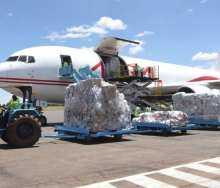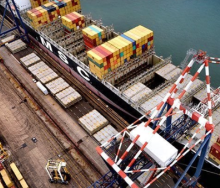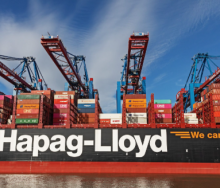In the hotly contested and unpredictable blueberry market, airfreight is regaining its appeal among South African exporters.
Of the 264.75 tonnes of berries exported by July 25 this year, only 19.82 tonnes were shipped by sea, and all of that went to the Middle East. The Middle East was also the biggest buyer by far, at just under 140 tonnes, or 53% of the total exports to date.
Although it’s still early in the season, this trend mirrors the past three seasons. Between last year and the year before, airfreight’s share of blueberry exports increased from 15.4% to 44%, and in the current season, 92% of all exports to date have been shipped by air.
The Middle East’s share of the blueberry export pie is also rising; the bloc only received 4.6% of South Africa’s blueberries in the 2021-2022 season, 5.7% in 2022-2023 and 10.1% last year.
Europe’s share of South African exports dropped from 62.9% in 2021-2022 to 47.1% last year, while the UK’s share rose from 27.3% to 35.3% over the same period.
Most of South Africa’s blueberries are grown in the Western Cape, and growers are therefore heavily dependent on the performance of the Port of Cape Town, which was recently rated the worst performer in the world by the World Bank.
In 2022, blueberry producers lost millions because a strike in the Cape Town harbour coincided with the peak export season for the highly perishable crop.
But according to Elzette Schutte, manager of producer representative body Berries ZA, ocean freight is a fairly recent development for this high-value niche market, and it is not solely because of harbour problems that airfreight is gaining ground.
“When the industry started exporting, around 2009, most of the cultivars in use had a fairly short shelf life, so in order to get them to export markets, they had to be sent by air. It’s only in the past three to four years that newer, more robust cultivars, which can last for the duration of an ocean journey, have come into production”
Last year, the world's largest exporter, Peru, experienced severe production losses due to drought brought on by the El Niño weather phenomenon, which resulted in shortages internationally on which South Africa could capitalise at short notice by shipping blueberries by air.
“It is the nature of the blueberry market that importers would say ‘We need berries right now.’ In such cases there is no time for shipping by sea, and usually the shortages in those markets will ensure high enough prices that the added cost of airfreight is justified,” she said.













